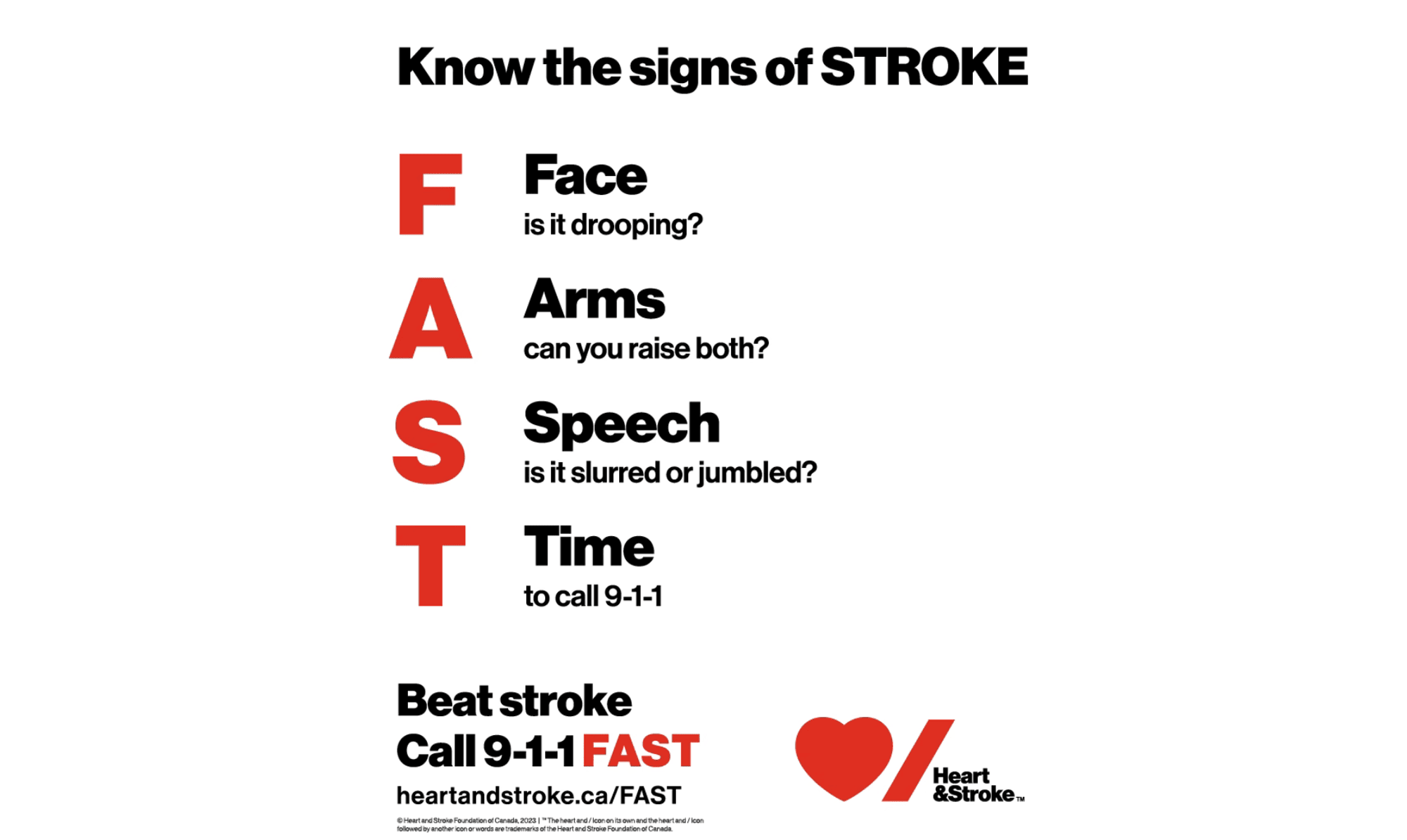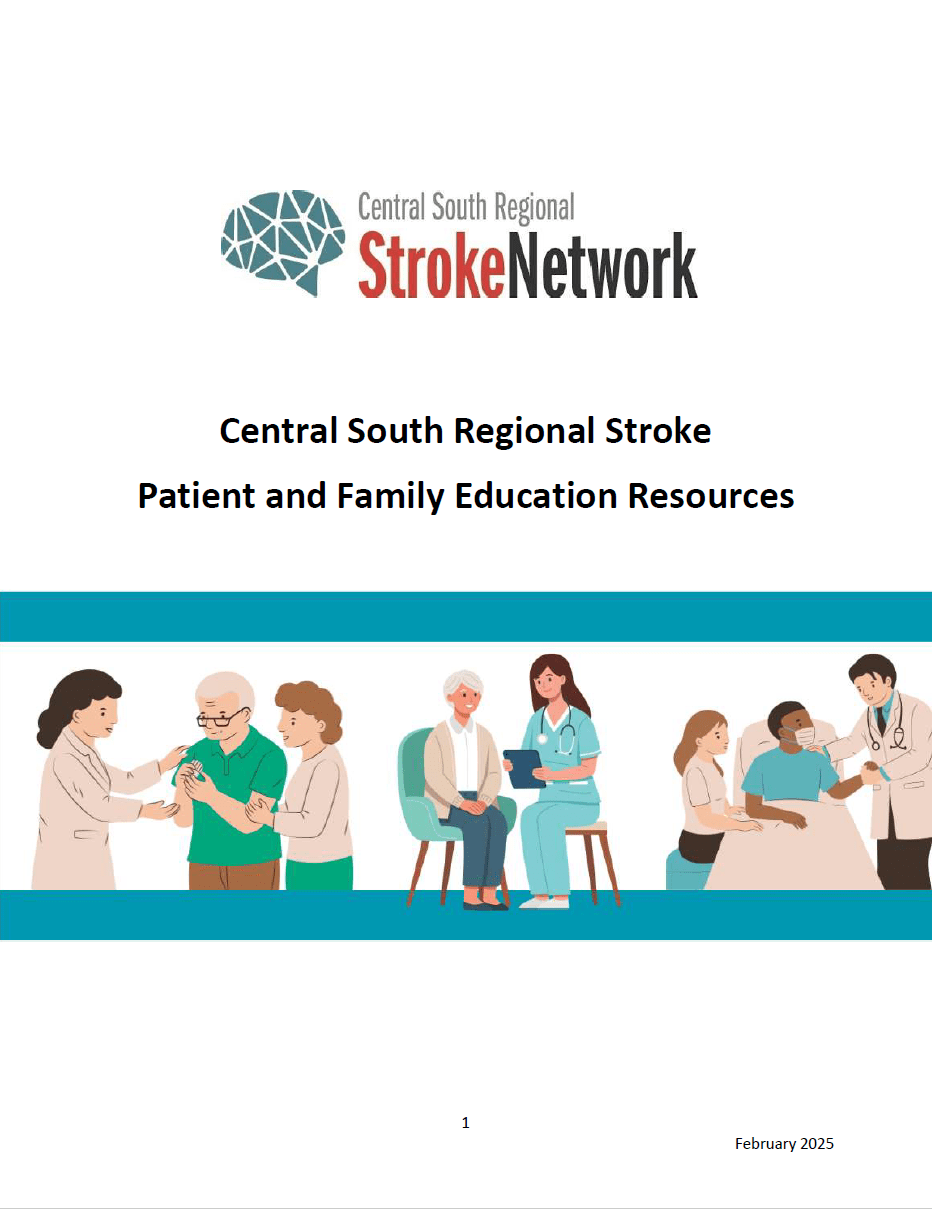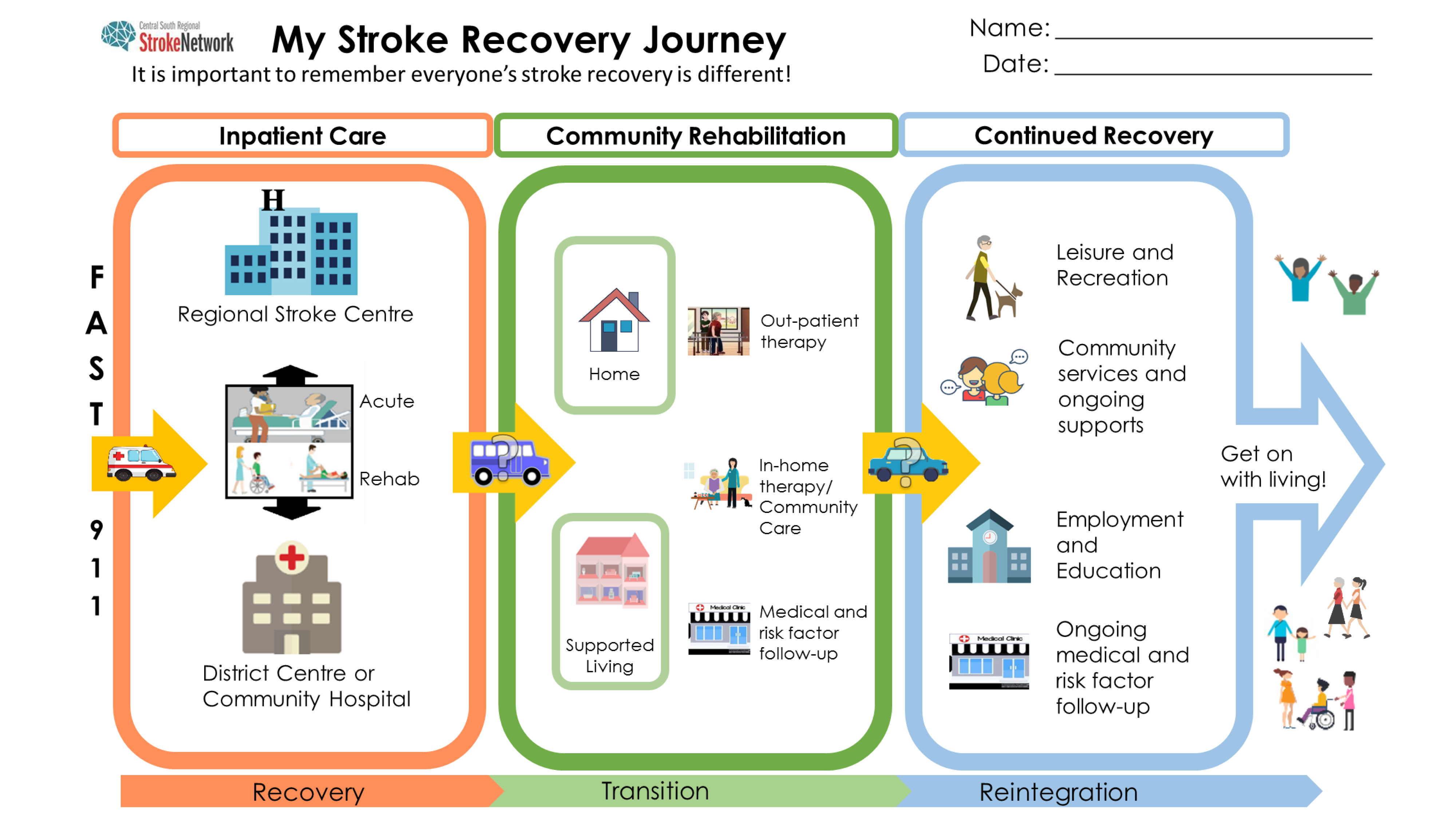“It all worked out perfectly”: Meet one of Niagara Health’s newest Nurse Practitioners
Lauren Oreskovich got inspired to become a Nurse Practitioner after crossing paths with one in her own care journey at the Niagara Falls Hospital.
Share This Page
The Niagara District Stroke Centre is based at Niagara Falls Hospital and is the regional centre for stroke care in Niagara.
We provide information and care to:


Get information to help answer questions you or a loved one may have about Stroke Care.
DOWNLOAD IN:English French Arabic Italian Portuguese
Punjabi Simplified Chinese Spanish

My Journey Map helps you track the progress of recovery by keeping a record of appointments, treatments and milestones. It offers valuable insights as you and your loved one move forward after a stroke.
DOWNLOAD IN:
English French Arabic Italian Portuguese
Punjabi Simplified Chinese Spanish
Our hospital is equipped with a specialized Stroke Centre, staffed with experts trained to manage stroke patients from the moment they arrive. The following areas are part of your care journey:
The Stroke Prevention Clinic helps lower the risk of stroke through specialized care. We offer thorough assessments and create personalized care plans for people who may be at higher risk for stroke. Our team includes:
They will work with you to help prevent future strokes. If you are a primary care provider, please refer patients using the Referral Form.
After initial treatment, patients may be transferred to the ASU for specialized care, including receiving treatment and rehabilitation to aid in their recovery. Patients receive care from a specially trained stroke team. This team includes doctors, nurses, and therapists who work together to assess and treat stroke in the early stages.
You may have questions about where you will go, how long your stay might be, and what to expect in your recovery. Your healthcare team will guide you through this journey – including working with you to assess your progress, plan rehabilitation and monitor your neurological recovery.
After a stroke, patients may transition to potential community services for their stroke recovery journey:
If you suspect a stroke, call 911 immediately to start the emergency care process. Your immediate treatment begins at the ED. We provide emergency stroke assessments at Niagara Health and across the region. You will be assessed, and diagnostic tests may be performed to determine the type of stroke. Our team quickly checks symptoms and starts treatment right away to improve outcomes.
If necessary, you may be admitted for close monitoring of your condition. ICUs are used for critical monitoring and intensive treatment.
After initial treatment, patients may be transferred to the ASU for specialized care, including receiving treatment and rehabilitation to aid in their recovery.
You may have questions about where you will go, how long your stay might be, and what to expect in your recovery. Your healthcare team will guide you through this journey, including working with you to assess your progress, plan rehabilitation and monitor your neurological recovery.
Once your loved one is in the hospital, we understand that recovery can be overwhelming. We are here to support both the patient and their family throughout the recovery journey. Our medical and rehabilitation teams are dedicated to maximizing recovery potential through targeted treatments.
After discharge, we provide resources on maintaining safety and improving quality of life at home, including rehabilitation exercises and lifestyle changes.
We encourage patients and their families to engage with community resources to aid in recovery. This includes connecting with organizations like Survivors of Stroke (SOS) and the Central South Regional Stroke Network.
As a patient or family member, you will meet many professionals on your healthcare journey. Our team will work closely with you, your family and friends in order to provide individualized care that meets your goals for health.
Our goal as members of your healthcare team is to help you manage your health and meet your stroke recovery goals.
Some members of our team include:
At Niagara Falls Hospital, we are dedicated to advancing the science of stroke care. We are actively involved in cutting-edge research aimed at improving stroke prevention, treatment, and rehabilitation. Learn about ongoing research projects and how we’re working toward a future where stroke outcomes are even better.
Niagara Health launched the Neurology and Stroke Research program in 2023 after being chosen by Accelerating Clinical Trials (ACT) Canada Consortium, as 1 of 20 community hospitals in Canada, to receive 3 years of funding for clinical research.
Dr. Danielle de Sa Boasquevisque, Stroke Neurologist, Physician Lead and Principal Investigator for Niagara Health’s Neurology and Stroke Research program, has been instrumental in initiating access for Niagara residents to participate in research.
The entire Niagara Health Stroke Neurology Research team is excited to collaborate with the community on enrollment in suitable studies.
Healthcare providers with patients who may be eligible or patients interested in participating in stroke and neurology research at Niagara Health are asked to contact the GNG Stroke Program.
Your Stroke Journey Map will help patients navigate through the system of stroke care.
Read inspiring stories from stroke survivors who have experienced recovery and hope after their stroke. Their journeys highlight the importance of swift treatment, rehabilitation, and the ongoing support of family and healthcare teams.
Lauren Oreskovich got inspired to become a Nurse Practitioner after crossing paths with one in her own care journey at the Niagara Falls Hospital.
Jerry Winnicki and Trent Schott both suffered strokes in the past year. Each one credits the care they received through Niagara Health’s nationally recognized acute stroke program with helping them recover.
Niagara Falls Hospital has earned national recognition for its exceptional stroke care, receiving the Stroke Distinction from Accreditation Canada.
Hotel Dieu Shaver Health and Rehabilitation Centre is a specialty rehabilitation and complex care hospital offering both inpatient and outpatient programs, located in St. Catharines, Ontario.
Learn more at hoteldieushaver.org
Survivors of Stroke Niagara is a peer support group for stroke survivors, their caregivers and families. It is led by volunteers with lived experience and provides a safe and welcoming space for members to support one another.
Learn more at survivorsofstrokeniagara.com
